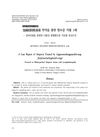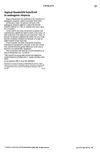 October 2023 in “Biomaterials”
October 2023 in “Biomaterials” Nanotechnology could improve hair regrowth but faces challenges like complexity and safety concerns.
 2 citations,
December 2019 in “Veterinary Dermatology”
2 citations,
December 2019 in “Veterinary Dermatology” Microneedling with platelet-rich plasma helps dog hair regrow faster than microneedling alone.
8 citations,
October 2021 in “Experimental cell research” Engineered vesicles from macrophages help hair growth in mice and humans.
1 citations,
May 2021 in “Dermatology practical & conceptual” Iontophoresis with growth factors safely and effectively promotes hair regrowth without discomfort.
 August 2023 in “Skin Research and Technology”
August 2023 in “Skin Research and Technology” Platelet-rich plasma (PRP) may improve healing in chronic wounds and vitiligo and promote hair regrowth, but more research is needed.
 April 2023 in “Journal of Investigative Dermatology”
April 2023 in “Journal of Investigative Dermatology” Defective T cell metabolism can cause early skin aging and poor hair follicle stem cell function.
 September 2022 in “Journal of The American Academy of Dermatology”
September 2022 in “Journal of The American Academy of Dermatology” Baricitinib was effective in regrowing eyebrow and eyelash hair in patients with severe alopecia areata.
September 2022 in “Applied sciences” Combining micro-needling, LED therapy, and growth factors with Finasteride® significantly improves hair growth.
 64 citations,
July 2011 in “Dermatologic Therapy”
64 citations,
July 2011 in “Dermatologic Therapy” Scalp cooling can prevent chemotherapy-induced hair loss, and certain treatments can speed up hair regrowth, but more research is needed for better treatments.
 50 citations,
January 2007 in “PubMed”
50 citations,
January 2007 in “PubMed” Minoxidil 2% and 5% are common treatments for female pattern hair loss, with other options including anti-androgens, oral contraceptives, and hair transplantation.
 4 citations,
November 2011 in “Archives of Dermatology”
4 citations,
November 2011 in “Archives of Dermatology” Hamilton scale imprecise, hair shaft diameter decreases, stem cell transplant regrows hair, ECP ineffective for alopecia areata universalis.
 2 citations,
September 2022 in “Dermatologic Therapy”
2 citations,
September 2022 in “Dermatologic Therapy” Tofacitinib is a promising treatment for severe alopecia areata, with many patients experiencing complete or partial hair regrowth.

Finasteride and low-level laser therapy are similarly effective for frontal pattern hair loss.
 January 2024 in “Skin appendage disorders”
January 2024 in “Skin appendage disorders” Using growth factors and microneedling shows promise for hair regrowth in Alopecia Areata, but more research is needed.
 January 2015 in “Springer eBooks”
January 2015 in “Springer eBooks” Some alternative treatments may help with hair loss, but more evidence is needed to confirm their effectiveness.
 1 citations,
July 2016 in “Prescriber”
1 citations,
July 2016 in “Prescriber” Minoxidil and spironolactone slow hair loss in women.
 January 2016 in “Chemistry & Industry”
January 2016 in “Chemistry & Industry” Two drugs, tofacitinib and ruxolitinib, may help regrow hair by activating hair follicles.
 3 citations,
February 2014 in “The Journal of Korean Medicine Ophthalmology and Otolaryngology and Dermatology”
3 citations,
February 2014 in “The Journal of Korean Medicine Ophthalmology and Otolaryngology and Dermatology” Herbal medicine and acupuncture helped regrow hair and reduce pain in a patient with Alopecia Areata.
 August 2016 in “Journal of Investigative Dermatology”
August 2016 in “Journal of Investigative Dermatology” Scalp psoriasis features reversible hair loss and specific immune activation, with no significant hair follicle damage.
 December 2011 in “Korean journal of veterinary research”
December 2011 in “Korean journal of veterinary research” A Miniature Pinscher dog with hair loss and scaling was diagnosed with pattern alopecia and improved with melatonin treatment.
37 citations,
September 2012 in “Archives of dermatology” Diphencyprone can help some children with alopecia areata regrow hair, but it often causes side effects.
 36 citations,
January 2015 in “Dermatology”
36 citations,
January 2015 in “Dermatology” Bimatoprost was found to be safer and more effective than mometasone furoate for treating scalp hair loss.
 15 citations,
October 2020 in “Journal of Investigative Dermatology Symposium Proceedings”
15 citations,
October 2020 in “Journal of Investigative Dermatology Symposium Proceedings” Platelet-Rich Plasma (PRP) could potentially help regrow hair in people with Alopecia Areata, but more research is needed to confirm its effectiveness.
1 citations,
January 2021 in “Journal of Cutaneous and Aesthetic Surgery” Low-level light therapy can safely and effectively stimulate hair growth in people with androgenetic alopecia.
 September 1997 in “Inpharma Weekly”
September 1997 in “Inpharma Weekly” Rubbing finasteride on the scalp helps with hair loss.
 January 2014 in “IOSR journal of pharmacy”
January 2014 in “IOSR journal of pharmacy” Adalimumab can cause complete hair loss in rare cases.
 April 2019 in “Dermatology reports”
April 2019 in “Dermatology reports” A 12-year-old boy's hair fully regrew after 8 weeks of treatment for tinea capitis, and dermoscopy was useful for diagnosis and monitoring.
 8 citations,
June 2016 in “Journal of Pharmacy Practice”
8 citations,
June 2016 in “Journal of Pharmacy Practice” Lisinopril, a heart medication, probably caused hair loss in a patient, which stopped after switching drugs.
 2 citations,
June 2023 in “Indian journal of dermatology, venereology, and leprology”
2 citations,
June 2023 in “Indian journal of dermatology, venereology, and leprology” Janus kinase inhibitors can regrow hair in alopecia areata but may cause side effects and hair loss may return if treatment stops.
 September 2023 in “International Journal of Trichology”
September 2023 in “International Journal of Trichology” Tofacitinib helped a woman regrow hair with no major side effects.

























